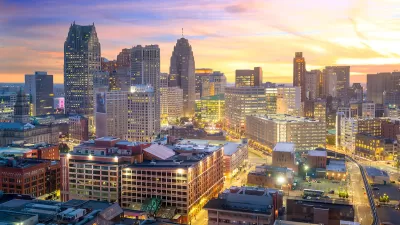Population is the last taboo, says Mother Jones, but on the way to 10 billion in 2045, we might want to consider having the conversation.
Can the Earth support a rapidly expanding human population? All sides of the political spectrum shy from discussing the idea, and the steps that might need to be taken to control growth.
Julia Whitty takes a long hard look at the numbers behind this bugaboo:
"Planned or not, wanted or not, 139 million new people are added every year: more than an entire Japan, nearly an entire Russia, minus the homelands and the resources to go along with them. Countered against the 56 million deaths annually, our world gains 83 million extra people every year, the equivalent of another Iran. That's 1.6 million more humans alive this week than last week and 227,000 more people today than yesterday-all needing food, water, homes, and medicine for an average lifespan of 69 years."
FULL STORY: Population: The Last Taboo

Alabama: Trump Terminates Settlements for Black Communities Harmed By Raw Sewage
Trump deemed the landmark civil rights agreement “illegal DEI and environmental justice policy.”

Planetizen Federal Action Tracker
A weekly monitor of how Trump’s orders and actions are impacting planners and planning in America.

Why Should We Subsidize Public Transportation?
Many public transit agencies face financial stress due to rising costs, declining fare revenue, and declining subsidies. Transit advocates must provide a strong business case for increasing public transit funding.

How Housing as a Financial Product Harms Communities
Institutional buyers who treat housing as an investment product become disconnected from the impacts of higher rents, displacement, and housing instability.

Blinded by the Light: When Brighter Headlights Decrease Safety
Bright LED headlights can create glare and reduce visibility for other drivers and pedestrians.

Study Links Covid and Poor Driving
The effects of the virus, including ‘brain fog,’ can make driving more difficult and dangerous.
Urban Design for Planners 1: Software Tools
This six-course series explores essential urban design concepts using open source software and equips planners with the tools they need to participate fully in the urban design process.
Planning for Universal Design
Learn the tools for implementing Universal Design in planning regulations.
Caltrans
Smith Gee Studio
Institute for Housing and Urban Development Studies (IHS)
City of Grandview
Harvard GSD Executive Education
Toledo-Lucas County Plan Commissions
Salt Lake City
NYU Wagner Graduate School of Public Service





























